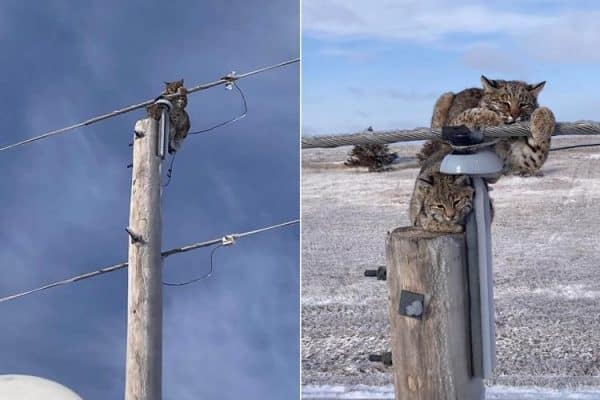AS parents, you naturally assume your child will be safe while travelling to and from school and won’t come to any harm.
However, a series of high-profile criminal cases in the UK has brought to light the unsettling reality that young people are being exploited in ordinary, everyday places.
 True crime psychologist and parenting Emma Kenny has give the top signs to look out for
True crime psychologist and parenting Emma Kenny has give the top signs to look out for
 AlamyEmma says the key to protecting your child is awareness[/caption]
AlamyEmma says the key to protecting your child is awareness[/caption]
Online grooming crimes in the UK have hit an all-time high, with police recording over 7,000 offences since last year for which there are figures, according to the NSPCC.
In south-east London, the grieving mum of Arsenal fan Kelyan Bokassa, 14, who was fatally stabbed on a bus in broad daylight earlier this week, fears her “polite” son may have been groomed by gangs and exposed to drugs before his tragic death.
In another disturbing case, Ellis Dismore, 24, from Middlesbrough, was sentenced to 43 years in prison for grooming and attempting to murder a 15-year-old girl and committing more than 20 other offences against young girls.
True crime psychologist and parenting expert Emma Kenny says the key to protecting your child is awareness.
“By understanding how grooming typically unfolds, you can be on the lookout for changes in your child’s behaviour and help them feel safe enough to confide in you,” she explains.
Here, Emma reveals the tactics often used by groomers and the signs you need to watch out for.
Befriending them
Groomers often hang around places where children or teens commonly pass, bus stops, corner shops, or even near school gates.
They might appear friendly or helpful, offering a ride if it’s raining or showing concern if your child looks upset.
You may assume a passer-by is simply being kind, but a sudden, overly generous adult presence in your child’s life deserves scrutiny.
What to look out for:
Your child mentions a new ‘friend’ who seems significantly older.
They receive unexplained lifts home or small gifts (like mobile top-ups, food, or small amounts of money).
They become secretive about who is giving them these ‘favours.’
Flattery and gifts as a hook
Groomers are skilled at spotting children or teens who might be feeling lonely, insecure, or misunderstood.
They use compliments and gifts to reel in their victim.
Whether it’s new clothes, a smartphone, or free meals, your child can be dazzled by the sense of being cared for or ‘treated like an adult.’
What to look out for:
Sudden appearance of unexplained gifts.
Excessive interest in social media messages or secretive phone calls.
Not wanting to explain how they got money or items.
Establishing trust and dependence
Once your child’s guard is down, a groomer focuses on building trust and emotional dependence.
They’ll provide a listening ear, reassure your child that they ‘understand’ them better than anyone else, and eventually isolate them from friends and family.
If your child believes this older person is the only one who truly gets them, the groomer has effectively tightened their grip.
What to look out for:
Your child withdraws from usual activities and social circles.
They may defend or make excuses for someone they’ve only recently met.
You notice an unusual shift in their mood, either secretive or overly emotional, particularly around phone or social media use.
 GettyWatch out for unexplained fear or anxiety, particularly when the phone rings or a message arrives[/caption]
GettyWatch out for unexplained fear or anxiety, particularly when the phone rings or a message arrives[/caption]
Using threats and control
Once a groomer has built up a child’s trust, they may switch tactics, demanding secrecy and even threatening harm if the child confides in someone.
This can be especially frightening if the child has already engaged in behaviour they are ashamed of (such as accepting gifts or lying about their whereabouts).
Groomers may blackmail victims with compromising photos or messages, warning that “no one will believe you” or “you’ll ruin your family’s life” if they speak out.
What to look out for:
Unexplained fear or anxiety, particularly when the phone rings or a message arrives.
A sudden change in personality, your child may seem on edge or unusually submissive. They may beg you not to check their phone or social media accounts without giving a clear reason.
New social circles
Unfortunately, some groomers in the UK have exploited cultural norms or familial respect within certain communities.
They may convince a teen that they’re being introduced to a ‘new social circle’ or manipulate them by suggesting they’re bridging cultural gaps.
In truth, they’re isolating the child from trusted peers and adults who might notice something is wrong.
What to look out for:
Your child expresses confusion about cultural or social norms you haven’t previously discussed.
They spend time with people who significantly differ in age and background yet keep these relationships secret.
They become evasive when you ask about new friends or acquaintances.
Steps to Keep Your Child Safe From Grooming
By Emma Kenny, true crime psychologist and parenting expert
Encourage your child to share their day-to-day experiences. Ask who they talked to on the way home, what happened at the bus stop, and if anything made them feel uncomfortable. The more openly you talk, the more confident they’ll be to speak up if something feels off. If possible, arrange for your child to walk or travel with friends. Identify safe spaces along the route, trusted neighbours or shops where they can go if they feel threatened. Groomers often switch to online contact once they’ve made initial in-person connections. Monitor your child’s digital devices in a respectful but proactive way. Agree on ground rules for social media use, and encourage them to show you anything that makes them feel uneasy. If your parental alarm bells are going off, do not dismiss those feelings. Challenge unusual behaviour or new relationships gently but firmly. Seek professional advice if you suspect your child is at risk. If you have any evidence or strong suspicions that someone is grooming your child, contact the police immediately. Support and guidance from organisations like the NSPCC or Barnardo’s can also be invaluable in helping you navigate this distressing situation.The boyfriend trick
This tactic is very effective and was cited as one of the methods used by the convicted Newcastle grooming gang of 2017.
Operation Sanctuary was launched in early 2014 to tackle extensive allegations of child sexual exploitation in Northumbria, with a focus on Newcastle, and was instrumental in dismantling a child sex ring.
The investigation stemmed from a single police report in December 2013, which uncovered evidence of a broader pattern of sexual abuse in the region.
“I worked for over a decade with young people and I worked directly with victims,” says Emma.
“Sadly, I had several grooming cases and all of these involved this tactic, but amongst practitioners it was a tactic that we all discussed because of its prevalence.”
Emma explained the method is very effective and is used predominantly by Pakistani sex gangs to exploit predominantly white girls and Sikh girls.
Young, attractive boys Pakistani boys are sent out to pay attention to particular young girls and to seek their trust.
Once the girl believes they are in a relationship with their new ‘boyfriend’ he will start to gather incriminating information about the girl.
These may include explicit photos which he’ll use to threaten his unsuspecting girlfriend.
This allows the gang to leverage that fear so the girls agree to do their bidding.
What to look out for:
Your child tells you they have a new boyfriend, but they are secretive about who he is.
You hear from others that your child is hanging around with an unusual group of people that are irregular to their normal group of peers.
Your child is going places at unusual times and being secretive about their locations.
What to do if you need help
By Vicky Young, head of Lucy Faithfull Foundation’s Stop It Now helpline
There’s been lots of public discussion about grooming gangs and parents rightly want to protect their families from all harm.
Children remain at highest risk from sexual abuse within their family, friends and wider community, and even other young people.
It’s important for parents to know the signs of child sexual abuse to look out for like unexpected changes in children’s behaviour or interests, knowing about sexual things beyond their age, or receiving unexpected money or gifts.
Talk to your children regularly and openly and let them know that they can come to you with any problems.
If you’re worried then get help and don’t keep it to yourself and – trust your gut.
The non-judgmental advisers on our anonymous Stop It Now helpline (0808 1000 900) can talk through any issues and help you work out what to do.












 Bengali (Bangladesh) ·
Bengali (Bangladesh) ·  English (United States) ·
English (United States) ·